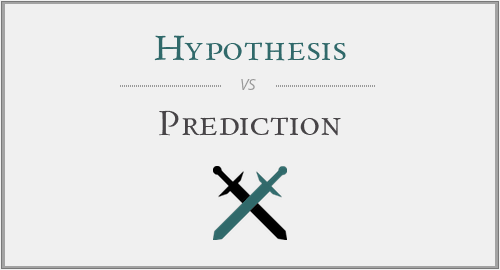
In our daily life, we are constantly using hypotheses and predictions to make logical, factual decisions.
What Is a Hypothesis?
A hypothesis is a guess which explains why something might be happening. That is, it offers an answer to an educated, fact-based question that we have formed, usually concerning phenomenon that we have observed.
• We form hypotheses when we ask questions, either in the lab, or in our day-to-day decision-making process.
• We observe and experiment to gather information that either supports our hypotheses or disproves our hypotheses.
•The “scientific method” is often used, either formally or informally, to prove or disprove hypotheses.
What is the Scientific Method?
The scientific method was developed in the 17th century. It is a process through which a hypothesis is tested and then proven either accurate or not accurate.
The process provides a way of ensuring that the validity of a hypothesis can be replicated; if not, that hypothesis is untrue and invalid.
The scientific method has 6 steps: Defining the purpose, Constructing the hypothesis, Testing the hypothesis/ Gathering the data, Analyzing the data, Drawing conclusions, and Communicating the results.
Example #1: Boiling Water with Salt
1. What is my purpose?
While I am preparing the water to boil my pasta, I wonder if I should add salt to the water. I ask myself, “Does water boil faster on its own or with salt added to it?”
2. I construct my hypothesis:
The alternative hypothesis must also be checked: that is, even if I add one teaspoon of salt to the water, it will not boil faster.
3. To test the hypothesis, I boil the water without salt and write down the boiling times, and the amount of water used. I repeat the same procedure exactly, except I add one teaspoon of salt to the pot of water.
• My “independent variables” are the things that can be manipulated.
4. I then analyze my results.
I look at the data that I have received from my experiment to determine whether my hypothesis is correct. Does water boil faster when I add salt?
5. I draw my conclusions.
6. I communicate the results to the rest of my family: Water boils faster when salt is added! We will find this to be true when we prepare our pasta in the future.
It is important to use precise words when writing a hypothesis. It must describe an idea that can be measured.
A well-written hypothesis produces results that are valid: that is, the independent variables have been controlled.
A poorly written hypothesis produces results that are invalid: that is, they cannot be replicated because they have too many independent variables.
Consider the following example:
Over the last centuries, our thinking processes have been influenced by the existence of the scientific method. Whereas it provides us with a logical, left-brain dominated way of asking and proving the nature of our reality, it often overrules our instinctual, right brain thoughts. As such, it sometimes provides a skewed answer to our hypotheses.
What Is a Prediction?
For example, my dog runs to the door every time the doorbell rings. I might predict that, if the doorbell rings tomorrow, then he will run to the door. Based on my observations of his behavior, my prediction tells what is likely to happen in the future.
Final Thoughts:
Although a Hypothesis and a Prediction are close in meaning, we have seen that there are some slight but important differences.
A hypothesis is a guess which explains why something might be happening in the present while a prediction is a guess which forecasts something about the future, using direct observation, data, and intuition.
A hypothesis is written as a testable statement whereas a prediction is often written as an “if, then” statement.
For example:
A manager notices that the most efficient work comes from employees that seem satisfied at their jobs.
He hypothesizes: Employees that rate as “satisfied” or above on the “Satisfaction Questionnaire” will be 20% more productive at their jobs.
Using independent, dependent, and responding variables, he can check to see if his hypothesis is true or false; if his hypotheses is true, then his prediction was accurate. If his hypothesis is false, then his prediction was false, as well.




Have a discussion about this article with the community:
Report Comment
We're doing our best to make sure our content is useful, accurate and safe.
If by any chance you spot an inappropriate comment while navigating through our website please use this form to let us know, and we'll take care of it shortly.
Attachment
You need to be logged in to favorite.
Log In